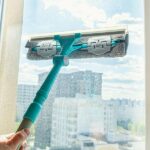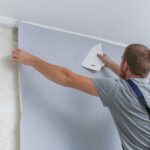If you’re finding that birds are making their home in your property, there are a few things you can do to deter them from staying. Here are 5 of the best ways to prevent birds from nesting in your property:
Nesting birds are not as hazardous as some pests, but their nests and droppings can cause nasty smells in a home. So how can you prevent this?
A bird’s nest can look unsightly, ruining the finish of your home. Additionally, birds that nest and then go on to die indoors can leave some nasty remains behind, leading to smells and other pest infestations. So how can you stop this from happening? Our simple check-list of five things you can do to prevent birds from setting up home should help!
1: Take preventative measures in winter
Prevention measures should be taken after birds have stopped nesting, which is generally in the winter. This is especially true for migratory species of our feathered friends.
During the summer, when birds nest in large numbers, denying access is simply not possible. By planning for the summer months where birds are more active will help you to keep you home free from nesting birds.
There are exceptions to the rule, pigeons generally next all year round so always check your property before you take measures to prevent birds nesting. If you find a birds nest the best thing to do is to leave it alone, usually if you make your presence known these nesting birds will relocate to a safer area, hopefully not in another location in your property.
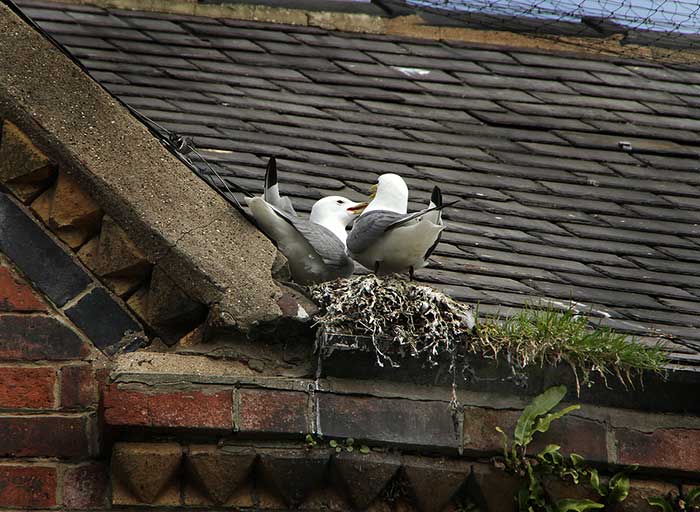
2: Place bird boxes in strategic locations.
One way to prevent birds from nesting in your roof space is to provide them with an easier alternative, a bird box. Birds like nesting in darker, enclosed spaces, so they are likely to find a space in your property if it is of the right size. So place your bird boxes strategically, don’t just slap them on the side of your house. They should be placed near to any potential problem areas or damage to your roof, hopefully the birds will choose the easier option of using the bird box.
The best locations for placing these boxes is high up on walls or trees next to trees that allow entry into these dark areas. These dark spots are perfect for birds seeking shelter, where they can nest away from sight, predators and humans.
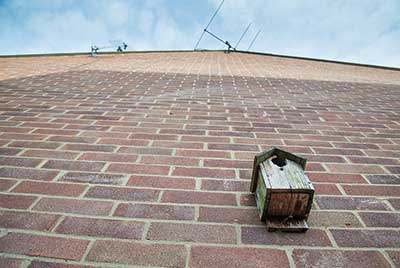
3: Clear rubbish and debris
Birds, like most other household pests are attracted by rubbish and debris. They see this debris as next building materials, to make sure your property doesn’t attract nesting birds you should always keep your gardens and property tidy where possible.
Sweeping up any leaves and twigs as well as removing any litter from the ground in your garden will help reduce the items available for birds to make nests with, this is extremely important in preventing birds from being able to build nests.
If they cant build a nest easily they will usually look for a better location, in this case off your property.
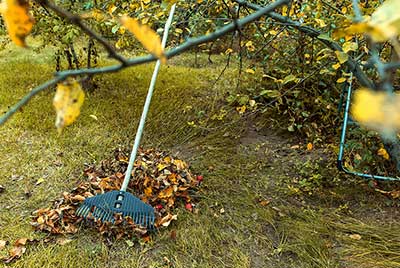
4: Seal up holes in your roof structure
Birds commonly seek shelter in roof spaces, so by repairing and sealing any holes in your roof structure you can prevent them from nesting.
Before the birds start nesting, it’s critical to inspect your structure for gaps or spaces that they might utilize to nest in. If any are discovered, make sure they’re cleaned out and sealed up right away.
It’s vital to use wire mesh over any holes in your roof to prevent birds from nesting there. If you have spotted areas where mortar has been damaged around roof tiles or brickwork always repair this by repointing with new mortar if possible.
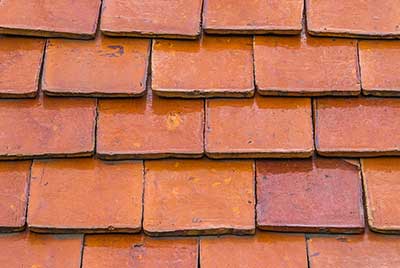
5: Use mirrors and decoys
A good way of preventing birds from nesting is to strategically place mirrors in identified problem areas. When the time comes for the birds to nest, they will begin to scout out suitable locations. Placing a mirror in one of these places means that if the bird does land, it will see its own reflection and think that a bird is already using that space to nest. The result? The bird will fly away in search of another nesting place, and your property remains pest free. This remains one of the cheapest and most effective methods of preventing a bird problem in your home.
Another method with a similar result is to buy a “decoy” bird, a fake bird which can be placed in the problem areas, decoy’s can also take the form of birds of prey or other predators such as a cat.
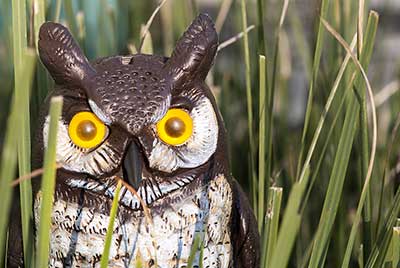
6: Use roof spikes if necessary
Roof spikes can also be used to prevent birds setting up home in your property, and they are generally an easy and cost effective solution. Roof spikes come in a variety of shapes and sizes depending on the size of the birds you want to deter, the spikes will prevent birds from landing on your roof, if they can’t land they cant nest.
Roof spikes should be used as a last resort as they can cause harm or injury to wild birds looking for a nesting location. Spikes are also illegal in some areas of the UK, so if in doubt steer well clear.
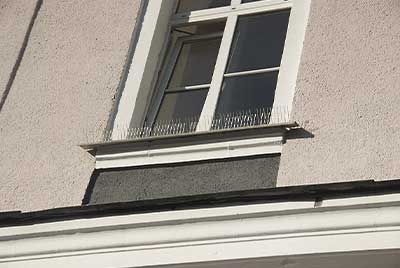
7: If in doubt, ask the professionals for help
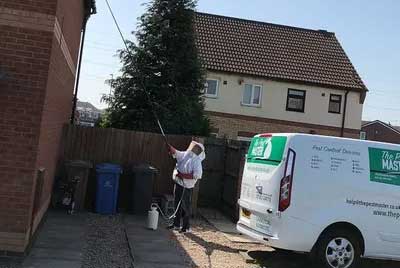
Summary
This article is published by Ultimate Home Improvement blog uk


